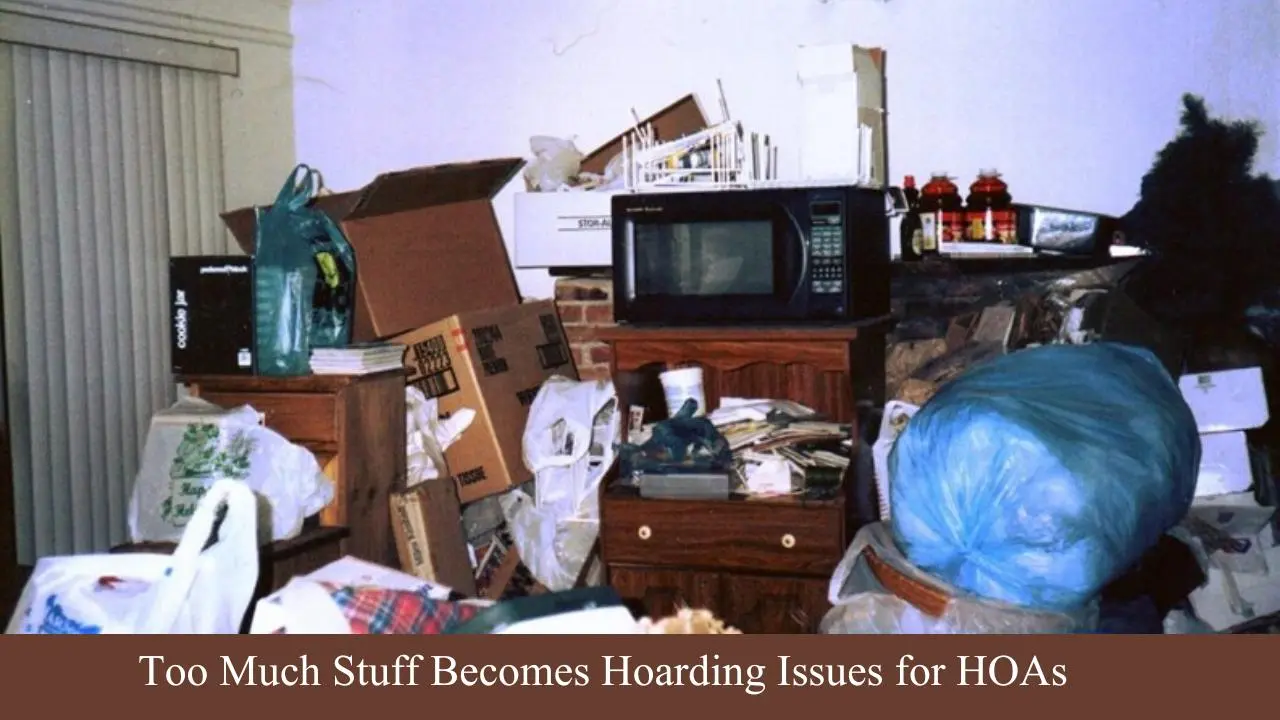For HOAs (Homeowners Associations), maintaining clean and visually appealing communities are top priorities. But what happens when a resident is a hoarder, whether willfully or grappling with a disorder? Property becomes cluttered creating an eyesore and a potential health hazard for the entire neighborhood. Here in Nevada HOAs and their attorneys face complex challenges: balancing property rights with the needs for safety and aesthetically pleasing residential areas that hold value.
Understanding Hoarding Disorder:
Hoarding disorder is a recognized mental health condition characterized by a persistent difficulty in discarding possessions, regardless of their actual value. This can lead to clutter accumulating in homes, often creating unsanitary conditions and potential fire hazards.
The Impact of Hoarding upon Communities:
A hoarded property within an HOA community has negative consequences:
- Eyesores and Reduced Property Values: Piles of belongings overflowing on property create an unsightly environment and potentially brings down the value of neighboring homes.
- Health and Safety Concerns: Hoarding creates breeding grounds for pests and leads to unsanitary conditions. Additionally, blocked exits and fire hazards put residents at additional risk.
- Strained Community Relations: The sight of cluttered property creates tension, frustration, and anger among neighbors.
Legal Considerations in Nevada:
Nevada Revised Statutes (NRS) Chapter 116 outlines the legal framework governing HOAs. However, dealing with hoarding falls into a complex legal gray area. Here are a few key considerations:
- Balancing Property Rights: Homeowners have a legal right to their property, which includes the right to accumulate possessions. HOAs cannot simply force residents to discard belongings.
- Nuisance Laws: If hoarding creates a public nuisance, such as attracting pests or creating unsanitary conditions, HOAs have stronger legal grounds for intervention.
- Health and Safety Codes: Violations of local Health and safety codes, like blocked exits or fire hazards, might provide grounds for legal action.
The Role of an HOA Attorney:
Given the legal complexities involved in dealing with hoarders, seeking guidance from an attorney experienced in HOA law is crucial. Here is how an attorney can assist:
- Reviewing CC&Rs: CC&Rs (Covenants, Conditions, and Restrictions) outline the rules and regulations for the community. An attorney can assess whether the CC&Rs provide any specific guidelines regarding property maintenance.
- Drafting Cease-and-Desist Letters: Should hoarding violate community standards or health codes, the HOA may need to issue a cease-and-desist letter demanding corrective action. Using an attorney is best to ensure needed letters are written in legally sound ways.
- Mediation and Negotiation: Working with a mediator to find a solution that respects the homeowner’s rights while addressing the community’s concerns is often the most effective course of action.
- Taking Legal Action: If negotiations fail and the hoarding creates a clear health or safety hazard, an attorney may advise pursuing legal action against the homeowner and oversee the same.
Strategies for HOAs:
While in severe cases legal action may be necessary, HOAs can take proactive steps to address hoarding and to support residents:
- Establish Clear Communication Channels: HOA boards should openly communicate the importance of maintaining a neat and safe community.
- Provide Resources and Support: Partner with local mental health organizations to offer informational resources and support services to residents struggling with hoarding disorders.
- Early Intervention: Address minor clutter issues before they escalate into major problems. A friendly reminder from an HOA representative can sometimes be enough to encourage positive action.
- Prioritize Compassion: Remember, hoarding may be a mental health issue. Maintain a compassionate approach while working towards a solution.
Nevada Resources for Hoarding:
- Nevada Division of Mental Health and Wellness: https://dhhs.nv.gov/
- National Institute of Mental Health: https://www.ncbi.nlm.nih.gov/pmc/articles/PMC4432907/
Correcting a Hoarding Situation Benefits Everyone
Addressing hoarding in HOA communities requires a multifaceted, tactful approach. By understanding the legal landscape, working with attorneys, and adopting compassionate approaches, HOAs can successfully navigate these delicate situations while protecting the well-being of communities and the affected residents. Remember, open communication, early intervention, and access to mental health resources are all crucial to finding workable solutions that benefit everyone involved. Placing situations of hoarding in the experienced attorneys is often the best course of action.









